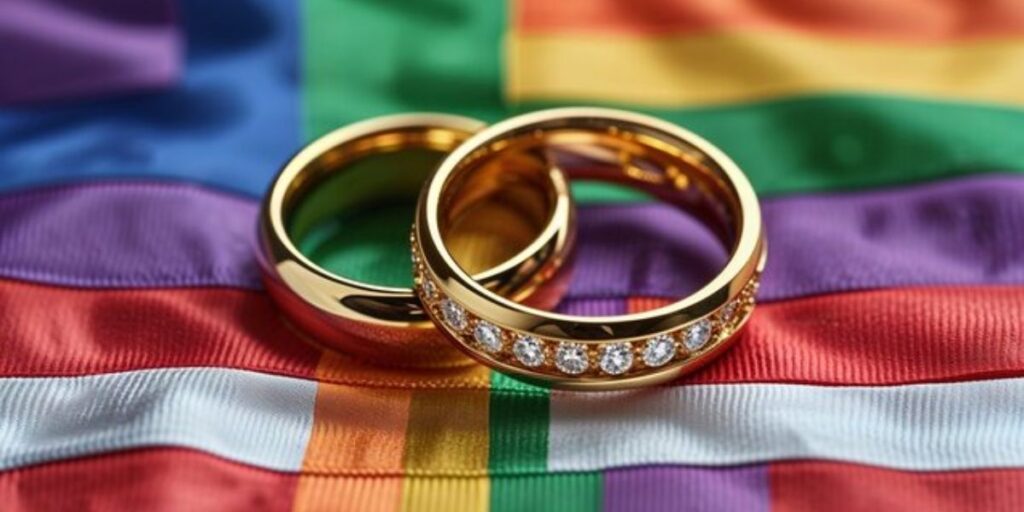Same-sex marriage has been a focal point of legal and cultural change across the United States for decades. In New Jersey, the journey toward marriage equality has involved numerous court cases, legislative battles, and activist efforts.
Today, same-sex couples in the Garden State enjoy full marriage rights—but getting there wasn’t easy.
Here’s a closer look at the legal status of same-sex marriage in New Jersey, how it became law, and what couples should know today.
The Early Legal Struggles for Same-Sex Couples
Before same-sex marriage became legal, same-sex couples in New Jersey faced significant legal barriers. For years, marriage laws in the state—like in most others—only recognized unions between one man and one woman. As the LGBTQ+ rights movement gained traction in the late 20th century, advocacy groups began challenging these restrictions through both the courts and public policy.
One major early milestone came in 2006, when the New Jersey Supreme Court ruled in Lewis v. Harris that same-sex couples must be granted the same legal rights and benefits as heterosexual couples. However, the court stopped short of requiring the state to allow same-sex marriage. Instead, lawmakers responded by creating civil unions—a compromise that allowed same-sex couples to gain many legal rights but still denied them the term “marriage.”
Civil Unions vs. Marriage: The Debate Heats Up
The civil union law, which went into effect in 2007, was seen by many advocates as a half-step that failed to provide true equality. Critics argued that civil unions were confusing and did not guarantee the same recognition—especially outside of New Jersey—that marriages did.
Over the following years, activists, lawmakers, and couples continued to push for full marriage equality. Their efforts culminated in a major breakthrough in 2013, when a state Superior Court judge ruled that civil unions were not enough and that same-sex couples must be allowed to marry in order to receive equal protection under the law.
Same-Sex Marriage Becomes Legal in New Jersey
On October 21, 2013, same-sex marriage officially became legal in New Jersey. The decision came after a ruling by Judge Mary Jacobson, who found that the state’s civil union law was unconstitutional following the U.S. Supreme Court’s United States v. Windsor decision, which struck down parts of the federal Defense of Marriage Act (DOMA).
Governor Chris Christie’s administration initially appealed the decision, but later dropped the appeal—effectively allowing same-sex marriages to begin immediately. The ruling marked a historic day in New Jersey as couples lined up to say “I do” at courthouses and city halls across the state.
National Legal Recognition
In 2015, the U.S. Supreme Court issued its landmark ruling in Obergefell v. Hodges, which legalized same-sex marriage across all 50 states. This decision cemented the legality of same-sex marriage in New Jersey and ensured that all states must recognize marriages regardless of gender or sexual orientation.
Since then, same-sex couples in New Jersey have had the same marriage rights, responsibilities, and protections under both state and federal law as heterosexual couples.
Marriage Rights and Benefits in New Jersey
Same-sex couples who marry in New Jersey enjoy full legal rights, including:
- The ability to file joint state and federal tax returns
- Access to spousal health benefits and insurance coverage
- Parental rights, including joint adoption and custody
- Inheritance and estate planning rights
- Hospital visitation and medical decision-making authority
- Divorce protections and spousal support
These rights are identical to those granted to opposite-sex couples, and New Jersey has additional protections in place that prohibit discrimination based on sexual orientation or gender identity.
What Couples Should Know Today
If you are in a same-sex relationship and considering marriage in New Jersey, the process is straightforward and identical to that for heterosexual couples. You’ll need to:
- Apply for a marriage license from your local municipal clerk’s office
- Wait the 72-hour mandatory period
- Have your ceremony conducted by an authorized officiant
- File your completed marriage certificate with the local registrar
Couples should also be aware that while same-sex marriage is protected at the federal level, continued efforts to safeguard LGBTQ+ rights remain important. State-level protections in New Jersey are robust, but rights could face challenges in other areas, such as parental recognition or healthcare access in some jurisdictions.
Conclusion
Same-sex marriage is fully legal and recognized in New Jersey, thanks to a long and determined fight by advocates, couples, and allies. From civil unions to full marriage equality, the state’s journey reflects broader national progress while reminding us that continued vigilance is key to protecting these hard-won rights. Today, LGBTQ+ couples in New Jersey can marry freely—and with the full dignity and protection they deserve.
.





More Stories
Marriage Equality in New Jersey: Legal Rights, Benefits, and What You Need to Know
Marriage Equality in New Jersey: Legal Rights, Benefits, and What You Need to Know
Marriage Equality in New Jersey: Legal Rights, Benefits, and What You Need to Know